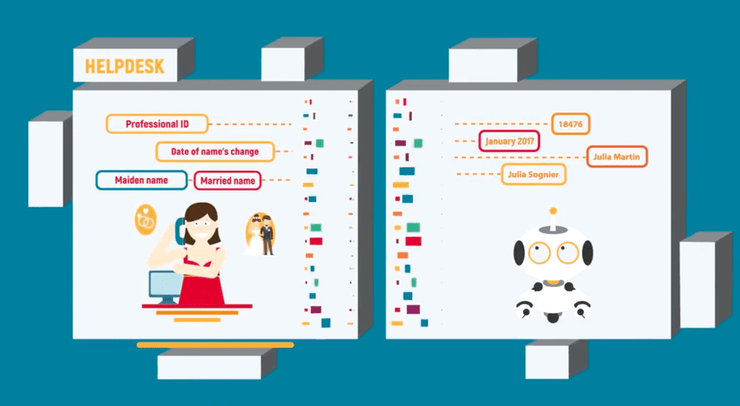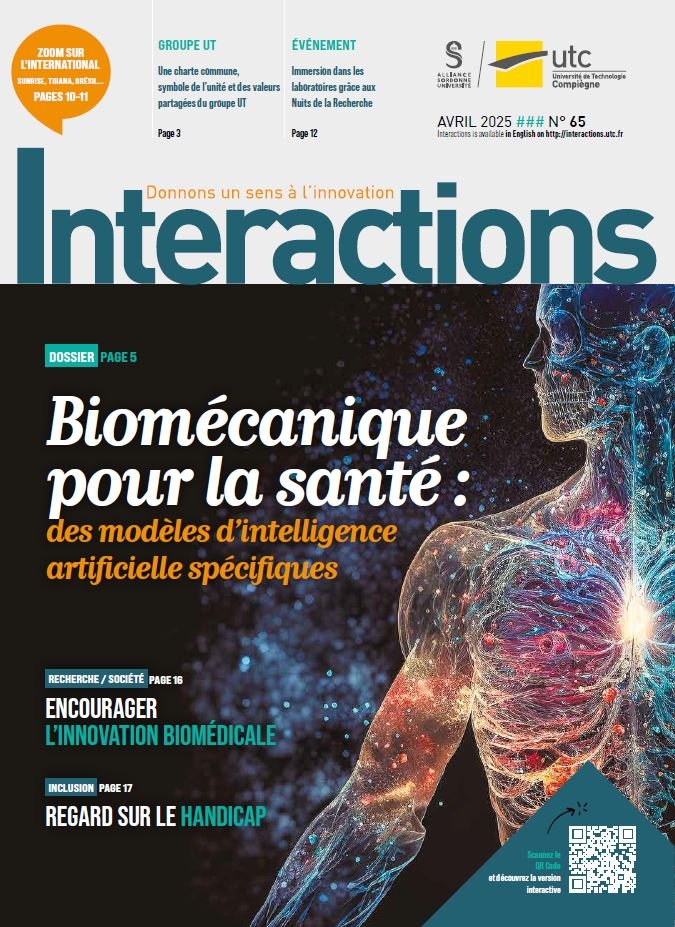The Man-Machine Interface (MMI) at the heart of tomorrow’s economy

Simon Collot, AI (artificial intelligence) expert at Sopra Steria, delivered a lecture in September at UTC to demystify the subject, inviting the audience to join him on a tour of the opportunities opened up by new AI-based innovations. Here is summary of his analysis and update.
Currently used in the service sector and in various industrial sectors, artificial intelligence has become increasingly present in a day-to-day professional and private spheres. The obstacles that remain are more human than technological. « The challenge lies every bit as much in writing the programming bricks as in convincing the colleagues in an enterprise that they can count on gains in efficiency and also to reassure them as to the resulting division of labour between men and machines: one of the roles of Sopra Steria being to accompany people in this acculturation”, explains Simon Collot who has notably been assigned advisory missions for and with the energy sector engineers and decision-makers. Whilst these AI derived innovations are often seen as a threat, expert Collot is convinced, he says, that Machines will assist Men but not replace them. “Automating certain processes will enable workers and operatives to concentrate on higher added value tasks and to be assisted in doing so”. Increasingly “agile” solutions With chatbots, specific trade-oriented solutions, auto-diagnosis in the aerospace sector, we see AI is unavoidable when it comes to proposing new services to clients and to gain in productivity in an increasingly competitive commercial context. It is a new technology that relies essentially on implementing three key stages: a situation stats and description thanks to analysis of complex data, predicting the next events, using models and – for the more advanced solutions – solving and correcting the problems as and when detected. “With AI the solutions are never ‘frozen’ and with auto-learning systems they can be improved and adapted to fit a changing environment”, adds our engineer, specialist in computer sciences and applications. At this point in time, computers can now imitate human conversation very closely. This potentiality can be of high interest to customer services – certain solutions have already been tested and others will come in the near future. After on-line message systems handled by automats, you will soon be able to call up an automat. Banks are among the most advanced enterprises using AI. “One of our customers has proposed extending the weekly/monthly cash withdrawal limit outside the account holder’s opening hours, or to engage in a dialogue with a robot and open a new account in a totally automated manner”. Although the electric power companies have been later starters in this fields, they are also engaged in the AI revolution. Their customer advisory services will soon able to rely on a technical assistance to propose personalised contracts to each consumer/customer. These new services will allow the enterprises to have a rapid ROI (return on investment) but other long term evolutions are currently being studied in our laboratories. Decentralized, renewable energy production in tomorrow’s ‘smart cities’ will be included in these major work programmes. Design of ‘smart’ networks is, indeed, very necessary to be able to balance supply and demand. News from AI-intensive sectors will be dense … Sopra Steria has the intention to satisfactorily accompany its customers as these evolutionary trends come to be.




